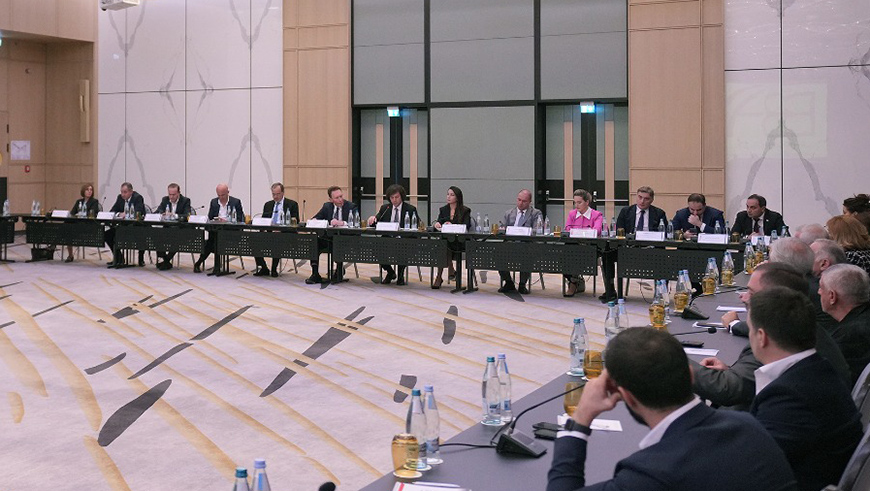BAKU, Azerbaijan, October 31. Minister of Economy and Sustainable Development Mariam Kvrivishvili participated in a meeting with the business community on Georgia’s higher education reform, which was opened by Prime Minister Irakli Kobakhidze, Trend reports.
Speaking at the event organized by the Business Association of Georgia, Kvrivishvili described the initiative as the most important education reform in the country’s history. She emphasized the need for the Ministry of Economy to conduct a comprehensive macroeconomic assessment of key sectors, taking into account labor market demands.
“We have a historic opportunity to balance supply and demand in the labor market and plan for future job creation across our economy,” the minister said. “We have already modeled how many new jobs businesses expect to generate next year and in five years, and identified the sectors and positions where shortages persist. This assessment also factors in upcoming investments that will shape new opportunities in Georgia.”
The meeting was attended by members of the government’s education reform commission, including Education Minister Givi Mikanadze, Chair of the Parliamentary Education Committee Mariam Lashkhi, Head of the Government Administration Levan Jorjoliani, and MP Shota Berekašvili.
Kvrivishvili underlined that cooperation between the government and businesses is crucial for developing a new roadmap to better understand sectoral challenges and workforce shortages. “With the right model, we can work effectively with the Ministry of Education to ensure that every university program aligns directly with business needs,” she said.
The minister also highlighted professional education as a national priority, especially in sectors such as information technology, hospitality, transport, and logistics. She stressed that vocational training plays a vital role in generating a new workforce to meet economic demand.
“We are determined to present the Prime Minister with a unified position of government and business, identifying the sectors and professions where skilled workers will be most needed over the next five years,” Kvrivishvili added. “Education reform - both higher and vocational - must be built on this logic to ensure every graduate has a real path to employment.”







